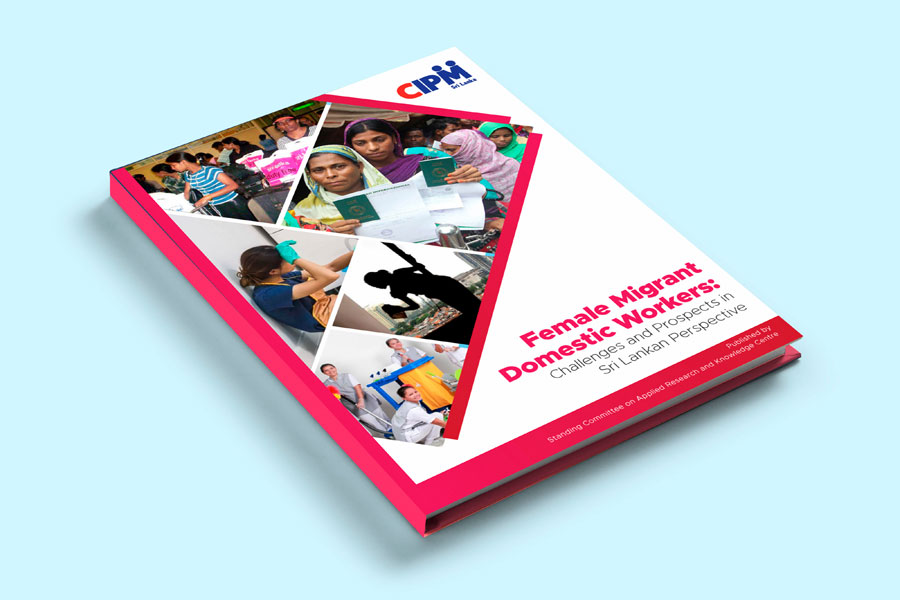The main objectives of this research were to identify the social and economic development of female migrant domestic workers after their return and to quantify the risk that employment conditions pose for the physical and mental health of female migrant domestic workers (FMDW).
Despite the significant amount of foreign income remitted by the FMDWs of Sri Lanka, this unrecognized labor category is especially vulnerable to the poor working conditions that affect their physical and mental status because of the poor legal framework and limited involvement by the governments of the host countries in their wellbeing.
“CIPM is pleased to have carried out this research project in collaboration with the National Committee on Women.
The insights gained and recommendations provided therein will add significant value in ensuring the well-being of our FDMWs and their families while helping to implement better programs and facilities for their security and care,” said Ken Vijayakumar – President of CIPM Sri Lanka.
The CIPM Research team comprised Prof. Prasadini Gamage – Principal Researcher, Dr. Prabhashini Wijewantha (Team Leader), Dr. Dillanjani Weeratunge, G.G. Udaya Priyasantha Rathnayake, and Tharindu Weerasinghe.
“This study provides the government and associated policy makers with deep insights and recommendations to better support the FMDWs to overcome financial difficulties which led them to go overseas, regulating the process of sending females abroad by increasing government involvement and by overseeing foreign employment-providing agencies, eliminating the challenges they face during their stay abroad, eliminating the challenges encountered by the families left behind during the absence of the mother or wife of the family, and supporting the FMDWs and their families in developing their economic and social status upon repatriation to Sri Lanka enabling them to get the maximum out of overseas employment, ensuring support for FMDWs during their stay abroad by increasing the sending state power and through the extensive involvement of overseas missions of the government of Sri Lanka,” said Prof. Prasadini Gamage.
As the demand for Sri Lankan domestic workers, especially in the Middle East, is on the increase, income generation through this indispensable yet unrecognized labor category must be regulated and formalized to ensure decent work and well-being for these employees.
It is expected the quality of life of female migrant domestic workers, their families, and all the poor women who struggle to meet their ends will be improved, bringing an end to the exploitation of these workers who earn much-needed foreign currency to the country.
The research was conducted with the aid of a survey questionnaire and has been published as a research report.
























